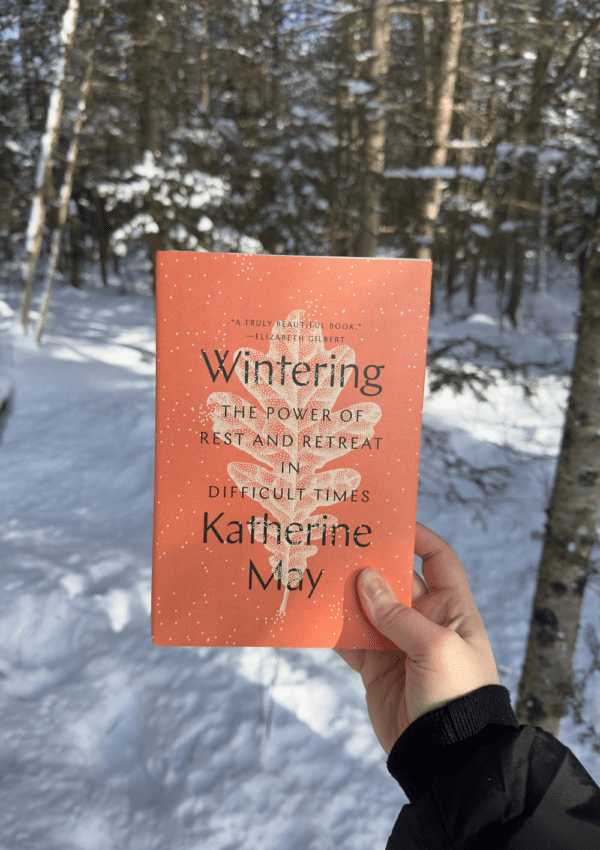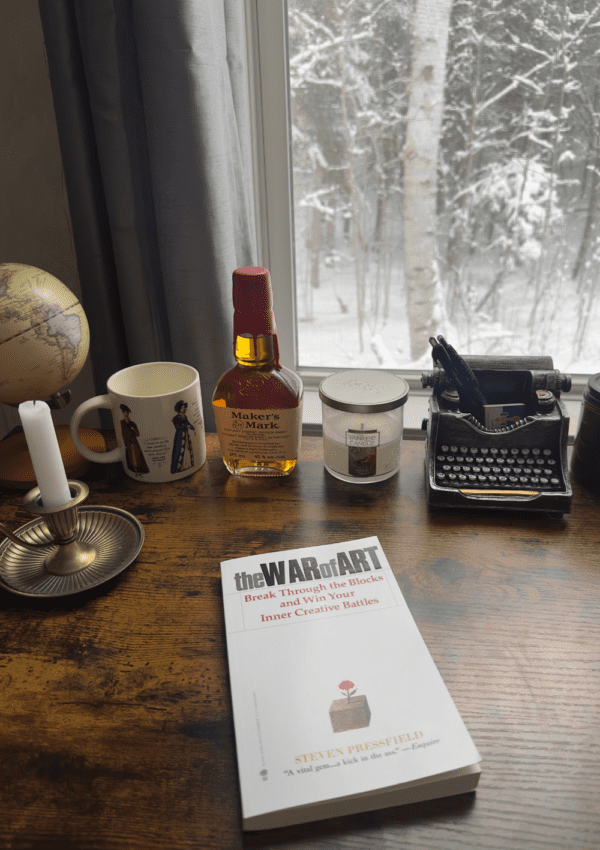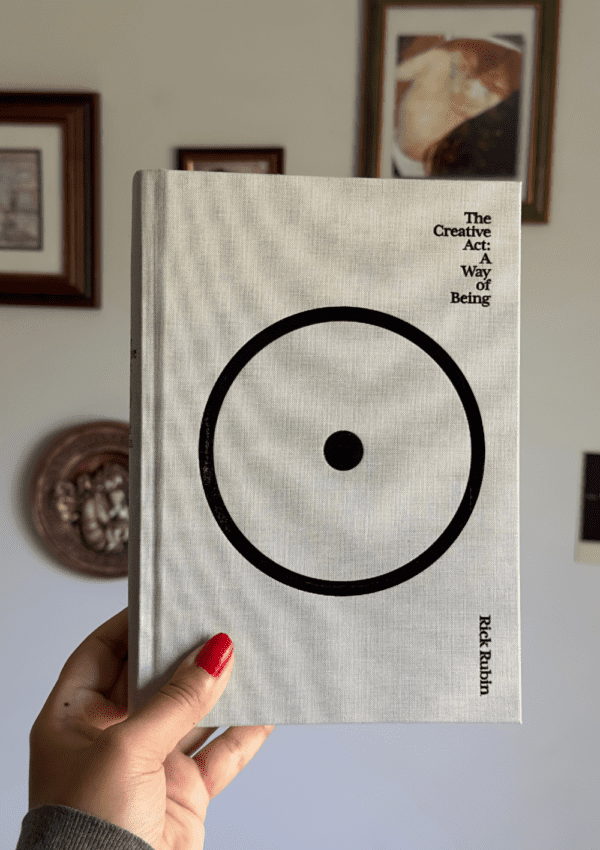This post may contain affiliate links, which means I’ll receive a commission if you purchase through my links, at no extra cost to you. Please read my full disclosure for more information.

Before diving into the crucial life lessons this non-fiction book has personally taught me, I would like to give a brief summary. I would also like to quickly mention why it has first impacted me many years ago.
I hope to encourage you to pick up this book or at the very least to watch the movie “Into the Wild.” If not, I hope this post helps you reflect on the lessons you have personally learned in your life.
If you recognize the title of this book, it may be because it is a critically acclaimed and often talk about for its controversy and its life-changing read. There is also a movie by the same name that was filmed a decade after the book’s publication. The book “Into the Wild” by Jon Krakauer came out in 1996 while the movie directed by Sean Penn was released in 2007.
What and who is the the story about?
The real life story is written by Jon Krakauer, the biographer. It follows the journey of a young man named Christopher Johnson McCandless. Krakauer retraces Chris’s story. Krakauer traces the young man’s path from 1990-1992.
After Chris McCandless graduated from Emory University, he hitchhiked from the East Coast all the way into the wilderness of Alaska. Before leaving for this trip – and leaving society and its materialism behind – Chris donated $24 000 US, the sum of his savings, to the OXFAM charity. The journey ends at the discovery of McCandless’s body in September 1992. McCandless died at 24. He died from starvation that was brought on by accidental poisoning.
When he left for his trip, Chris constructed a new identity and adopted a new name for himself. He referred to himself – and to others who met him along the way – as “Alexander Supertramp.”
In this matter, he severed his past self when he went into the wild.
What is Krakauer’s goal?
Krakauer in his non-fiction account, acknowledges the “stubborn idealism” that possessed Christopher. Yet, he wants to present the story of Chris McCandless to the world. Krakauer tries to remain as factual as possible and separates himself from his own authorial voice.
However, Krakauer confesses that he will draw parallels between him and Chris. Since, they share similar life experiences; the need for adventure, a strained father-son relationship, and the desire to seek solace into the wild.
Krakauer neither demonizes nor idolizes Chris McCandless. Instead, he humanizes him. He portrays him as best as he could using accounts from witnesses of McCandless journey under his pseudonym Alex Supertramp. McCandless was a real person with real thoughts and emotions. He had impacted many people’s lives while alive as he did in his passing.
Why has it influenced me?
About ten years ago, I had first seen this movie in a high school English class. It had impacted me so profoundly but at the time I could not understand why it moved me so.
Upon reflection, I think it was because I identified with a fierce idealism that I could never achieve myself. I was hesitant in believing what my peers were saying about their depiction of Chris McCandless. They said that he was dumb and disgusting. Why would he throw it all away just to be homeless and go to Alaska? But I never completely saw it that way. Even until this day, a decade later after first watching the movie and now having read the book.
I recognized a young man who denied, pushed back, and even challenged society’s great need for superficiality. The need to appear better, richer, and smarter all the time. I saw someone who was comforted by solitude and books as I was since I was a young child.
Equally, I saw someone who did not want to conform. Although McCandless was intelligent and had graduated from college, he wanted something more. He wanted adventure.
I found Krakauer’s portrayal of Chris McCandless refreshing and compelling to read and I drew crucial life lessons from “Into the Wild.”
Crucial life lesson #1 Try not to overthink
To begin with, it is okay not to always have the right answer.
Overthinking every issue in life will drive you into the wall.
As a young child, I used to think and analyze every little action and every word uttered to me. It stunned me a lot of times. I could not understand what a person truly meant by what they said and what they did. There was simply too many contradictions.
Truth be told, I could never know with full certainty what someone thought despite their actions and words. And I had to let that go.
There just wasn’t any concrete answer.
Every single person and the inner working of their minds are so incredibly different that to attempt to grasp fully the “why” a person would say or do this to another would simply be maddening.
I had to let overthinking go when it did not serve me anymore, when it burdened me with too many spiraling thoughts.
Upon describing Alex Supertramp (Chris McCandless) to Krakauer, Wayne Westerberg said that,
“He read a lot. Used a lot of big words. I think maybe part of what got him into trouble was that he did too much thinking. Sometimes he tried too hard to make sense of the world, to figure out why people were bad to each other so often. A couple of times I tried to tell him it was a mistake to go deep into that kind of stuff, but Alex got stuck on things. He always had to know the absolute right answer before he could go on to the next thing.”
Sometimes the best thing to do is to let things go. Or else, the constant thinking and searching for a right answer might hinder your well-being and in worse case’s, your life.
Although I do think we can make sense of the world, notice trends and patterns, establish order; but there is also chaos and nonsensical elements in the world around us that we can’t necessarily make sense of.
And that is okay.
Nowadays, when I catch myself overthinking, I do a brain dump on paper. I journal in order to let go of those pesky thoughts that hold me back from living my life as fully as I wish to.
SEE ALSO: How to Focus in the Present and Be Happier
Crucial life lesson #2 – Get out of your comfort zone
Alex (who is Chris) addresses a long – it was Chris’s last letter – letter to Ronald Franz in which he discusses the dangers of conformity.
Here is one of my favorite passages:
“So many people live within happy circumstances and yet will not take the initiative to change their situation because they are conditioned to a life of security, conformity, and conservatism, all of which may appear to give one peace of mind, but in reality nothing is more damaging to the adventurous spirit within a man than a secure future. The very basic core of a man’s living spirit is his passion for adventure.”
In this matter, conformity is stunting us. We take very little risk, we stick to routines and we are not adventurous enough. In this passage, I don’t think Chris is saying to drop everything like he did and simply run away from your life.
Instead, I see it more as in trying something new. Opening ourselves up for adventures, even if it is something as simple as booking a vacation to a destination we would have never planned on going or taking up a new skill we know nothing about.
Life is too short to relieve the same day over and over again.
Putting yourself out there is dangerous. We are terrified of opening ourselves up and letting others in. Chris pursues, “You will see things and meet people and there is so much to learn from them.”
Instead, we like to make excuses to stay in our comfort zones. Chris words ring true, we should not hesitate as much. We are too comfortable making excuses for ourselves.
“Don’t hesitate or allow yourself to make excuses. Just get out and do it. Just get out and do it. You will be very, very glad that you did.”
Crucial life lesson #3 – Challenge yourself to have new experiences
In this way, the mind should not always live in a comfortable state. It stunts growth and it does not prepare for the events in which life does become unnecessarily unpredictable.
By making life a little less predictable, we engage our minds to adapt to new situations and therefore to grow and to even start seeing the world a little bit differently.
Since, “The joy of life comes from our encounters with new experiences, and hence there is no greater joy than to have an endlessly changing horizon, for each day to have a new and different sun,” writes Chris in his letter.
Chris says in this letter that he can’t believe that Ron passes by the Grand Canyon, one of the greatest sights in the world, often in a rush to get home. He is astounded that Ron does not once stop to observe the beauty of the world. Chris says that the Grand Canyon is a sight that every American should be able to see at least once. And here is Ron passing by it all the time without truly visiting it once.
Beauty is all around us and we are constantly missing out on it.
“You are wrong if you think Joy emanates only or principally from human relationships. God has placed it all around us. It is in everything and anything we might experience. We just have to have the courage to turn against our habitual lifestyle and engage in unconventional living.”
Beautiful sights escapes us right in front of our nose. We are so caught up in our lifestyle and conventional way of going about life. If we challenged ourselves once in a while to live unconventionally, we would discover something entirely new and jaw-droppingly beautiful.
The road less travel is usually the life-changing road.
Crucial life lesson #4 – You are your own light
I believe Chris landed on a universal truth with this section of his letter. He writes to his friend that everyone has the ability to be their own light at the end of the tunnel.
This idea is not a novel one. But it is worth remembering, especially in dark times.
Although there is nothing wrong in sharing our lives and relying on others, we often forget that we are complete beings.
In a society that constantly pushes us towards the pursuit of perfection, it is important to remember that we have all that we need within us. We don’t need the perfect house, car, face, family, friend, in order to be content and fulfilled.
Chris writes beautifully:
“My point is that you do not need me or anyone else around to bring this new kind of light in your life. It is simply waiting out there for you to grasp it, and all you have to do is reach for it. The only person you are fighting is yourself and your stubbornness to engage in new circumstances.”
Crucial life lesson #5 – Go into nature
Nature is evidently a big theme in this non-fiction book. The increase rise of consumerism separates us from the importance of connecting with natural world instead of fabricated world of objects and materials. Technology also keeps us at home, planted in front of screens, and takes priority over our curiosity to explore the outdoors.
I too am guilty of consumerism and privileging screens over going into nature. I don’t remain outdoors as much as I used to. Now, it is an active decision on my part to take walks, to go on hikes, and to discover new trails and beautiful sights.
In “Into the Wild,” Krakauer talks about Everett Ruess and draws parallels to Chris McCandless story. Krakauer recounts that, “Everett twice etched the name Nemo—Latin for “nobody”— into the soft Navajo sandstone—and then vanished” as did Chris who left his footprints on a dark spot of the Alaskan wild.
Therefore, McCandless’s story in all of its uniqueness is not a new concept. A lot of people find comfort in exploring nature, charting territories that our minds wouldn’t have thought to visit beforehand.
Ruess last letter to his brother Waldo entails the following according to Lacy, Hugh (Editor) (1940) On Desert Trails:
“… as to when I revisit civilization, it will not be soon. I have not tired of the wilderness… It is enough that I am surrounded with beauty… This had been a full, rich year. I have left no strange or delightful thing undone I wanted to do.”
There is a richness of possibility and beauty that nothing else than nature can present.
Krakauer recounts his own endeavor into Alaska to uncover McCandless final days and he notes that, himself, “[He] was surprised, as always, by how easy the act of leaving was, and how good it felt. The world was suddenly rich with possibility.”
I think this is why people have wanderlust, the need to travel, to explore, to get away from the surroundings they’re accustomed to. There is a deep human need to do pilgrimages. It is freeing, the “possibility” that getting lost offers.
Even the magical blue bus – in which McCandless was found in – was left untouched. The bus became a site of pilgrimage for many people for nearly three decades. It has only been removed in 2020 and conserved in the Museum of The North at the University of Alaska (Fairbanks).
In going into nature, we sometimes feel even more connected to the world and its inhabitants.
Crucial life lesson #6 – Have intentional companionship
Krakauer’s own insight on Ruess and McCandless and himself is the following:
“We like companionship, see, but we can’t stand to be around people for very long. So we go get ourselves lost, come back for a while, then get the hell out again.”
I believe as humans we crave and need companionship. We are constantly surrounded and connected in this digital millennium. And yet… we are miserable and distant. It is an inherent need to have our alone time, time away from people, from our phones, time to reflect and work on our own lives and goals.
We need time for solitude and for strolls in the outdoors. This solitary time allows us to explore and have adventures, and experience new things but also to think clearly.
Yet, we also need good companionship. People who we trust and that would give us that space for growth and for peace.
By no means Chris McCandless was antisocial. The numerous people he met on the road liked him and he had made a long lasting impression on them. He opened himself to learning from them and connecting with them. He was also very close to his sister and very much adored by her. His sister, Carine McCandless wrote her own memoir in 2014 called “The Wild Truth.” She has lead a life deeply affected and touched by her brother.
Often times, we get too caught up in the wrong relationships and companionship. Here is where quality over quantity matters. When we finish our solitary journey, we feel good to return home to loving accepting arms.
Crucial life lesson #7 – Separate yourself from your career
Krakauer explains that Chris was not particularly fond of having a career. Chris was not a lazy guy, he did have jobs even when he completed his solo trip towards Alaska.
However, “When Walt and Billie [his parents] suggested that he needed a college degree to attain a fulfilling career, Chris answered that careers were demeaning “twentieth-century inventions,” more of a liability than an asset, and that he would do fine without one, thank you.”
Needless to say, Chris McCandless went and graduated from Emory College where he excelled.
I believe that the idea behind this lesson here is that a college or university degree is not a guarantee to the life or the job you necessarily want. It is a big time and money investment. There is much more at stake.
Although I don’t fully agree with Chris’s idealistic statement, I don’t completely disagree either. I do believe that there is no way around working and earning money in our society in order to make a living.
But, I do think that following the straight path can stifle our creativity. It can hinder our full potential, our calling – if you will – or our greatest life’s work. For some people it might be running a blog, becoming a doctor, a full time traveler, a writer, etc. Whatever it is, there is always a way to be happy doing what you love – or a semblance of it – while still making a living.
We put too much external and internal value dependent on our careers, our income, and our jobs. It is not inherently a bad thing at all. But there needs to be a balance. We are first a person before we are our job, our net-worth, our career, our level of education, etc.
Crucial life lesson #8 – Every family is flawed
Every family is flawed but every family is flawed in their own way. This reminds me of the famous Tolstoy’s quote in “Anna Karenina” (a phenomenal book I highly recommend it):
“Happy families are all alike; every unhappy family is unhappy in its own way.”
Chris McCandless valued truth. He valued authenticity. There is a quote highlighted by Henry David Thoreau, it reads;
“Rather than love, than money, than fame, give me truth.”
In this segment, Krakauer makes a deep dive into Chris’s family history. Chris’s father’s past marriage and subsequent divorce, in which he had another child, had troubled Chris for a very long time.
Chris was angry at the family’s deception and cover ups. He was outraged at the double life his father lead as well as all the lies the family kept about the entanglements.
Krakauer reminds that, “Children can be harsh judges when it comes to their parents, disinclined to grant clemency, and this was especially true in Chris’s case.”
Chris kept everything in, all the resentment. He withdrew from his parents and became sullen. He always remained close with his sister Carine.
It is hard to reconcile that the people we grew up with are not perfect and that they can hurt us very deeply. Forgiveness is important for yourself and for others. But I do believe that we have the choice to separate from the familial ties if they present intentional harm to us. You can love family members while not being too close to them at once.
Crucial life lesson #9 – You are mortal
I think this lesson is quite obvious. We all die eventually and we are all very much mortal. We should not take our life for granted.
Consequently, our youth does not last forever. The consequences of our actions in our youth end up catching up with us in adulthood.
The truth is, we generally have a sense of entitlement when we are younger because we believe that we are untouchable and have so many years yet to live.
This is at once, a good and bad thing. We shouldn’t live our lives in fear and we should challenge ourselves every day. Yet, we eventually learn our lesson, that we shouldn’t put our hand in the fire if we don’t want to get burned.
This is called self-preservation. Too much of it, we live life in fear. Too little of it, we take risks that could risk our lives.
Krakauer acknowledge that, “It is easy, when you are young, to believe that what you desire is no less than what you deserve, to assume that if you want something badly enough, it is your God-given right to have it.”
Krakauer writes those words as he reflects back on his climb of the Devils Thumb, a trip that not many others have had the same luck surviving. He says it is by pure chance, and climbing it didn’t change anything in his life. Krakauer thought it would before embarking in the risky journey when he was younger, stronger, healthier and a little bit more naive. He felt untouchable or simply did not care enough.
In his youth, death had simply been an abstraction. In his adulthood, not so much anymore.
Crucial life lesson #10 – Community is important
Krakauer depicts Chris’s “great Alaskan Odyssey” as the roundabout journey of Chris slowly coming back home. Krakauer believes that Chris McCandless realized towards the end of his adventure, the importance of reintegrating himself into community.
The path to wilderness is a way to evade one’s dislike with the cruelty and shortcomings of society. Jon Krakauer cites a quote from Roderick Nash in his work “Wilderness and the American Mind”:
“Wilderness appealed to those bored or disgusted with man and his works. It not only offered an escape from society but also was an ideal stage for the Romantic individual to exercise the cult that he frequently made of his own soul. The solitude and total freedom of the wilderness created a perfect setting for either melancholy or exultation.”
The last thing Chris McCandless read was “Doctor Zhivago” in which he noted in the margins “[HAPPINESS ONLY REAL WHEN SHARED].”
From this, Krakauer concludes that perhaps McCandless was ready to open himself up again.
“It is tempting to regard this latter notation as further evidence that McCandless’s long, lonely sabbatical had changed him in some significant way. It can be interpreted to mean that he was ready, perhaps, to shed a little of the armor he wore around his heart, that upon returning to civilization, he intended to abandon the life of a solitary vagabond, stop running so hard from intimacy, and become a member of the human community.”
Of course this will never be known for sure. However, from the accounts of people that were affected by him and came in contact with him, McCandless might have been reserved and stubborn but he was also wise and giving.
Feel free to leave life lessons you have learned from “Into the Wild” book and/or movie as well as your own personal life lessons.
If you like life lesson books, you should check out my blog post on How to Focus in the Present and be Happier from Eckhart Tolle’s “The Power of Now.”
- What is Autofiction? (5 Autofiction Novels To Read)
- 8 Classic Fall Books to Read this Fall
- 20 Best Fall Books You Need to Read this Autumn
- Why You Should Take a Social Media Break (6 Big Mental Health Reasons)
- Top 7 Books for Entrepreneurs









I like the write-up, the point in which the site is actually a tiny little bit unique tends to make it so useful, I actually get fed up of viewing the exact outdated monotonous recycled stuff just about all of the time.
Thank you so much for this comment! It truly inspires me to keep going in this pursuit of helping others (through the written word) while trying to be as authentic and helpful as I can be. 🙂